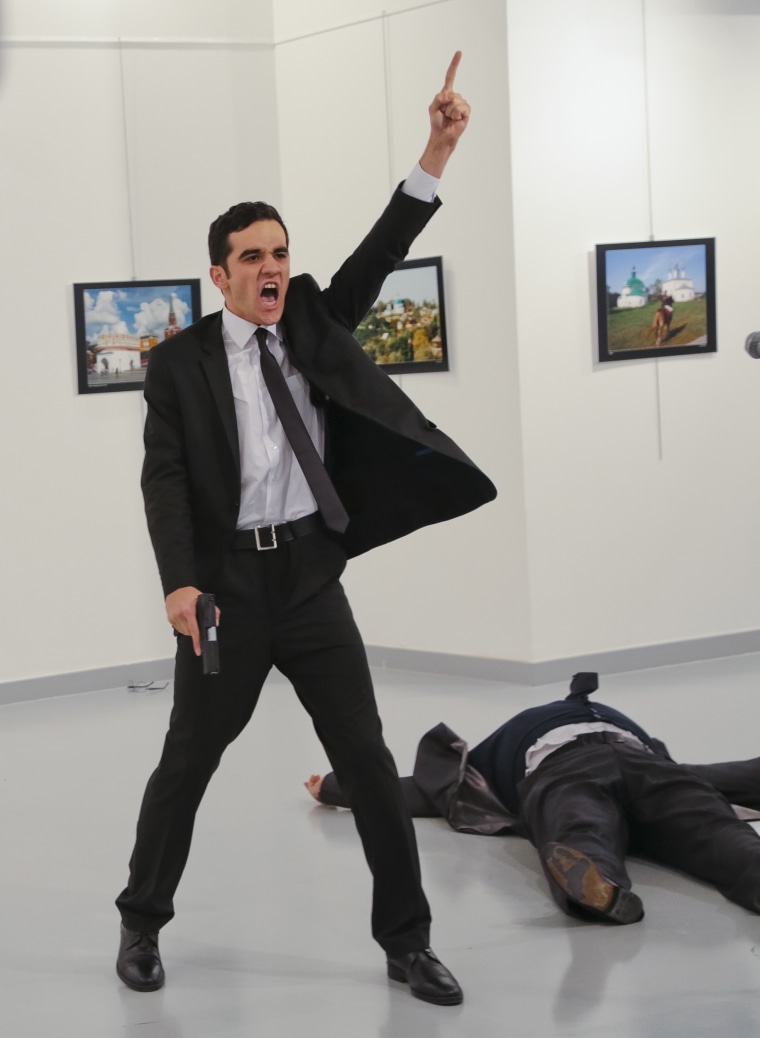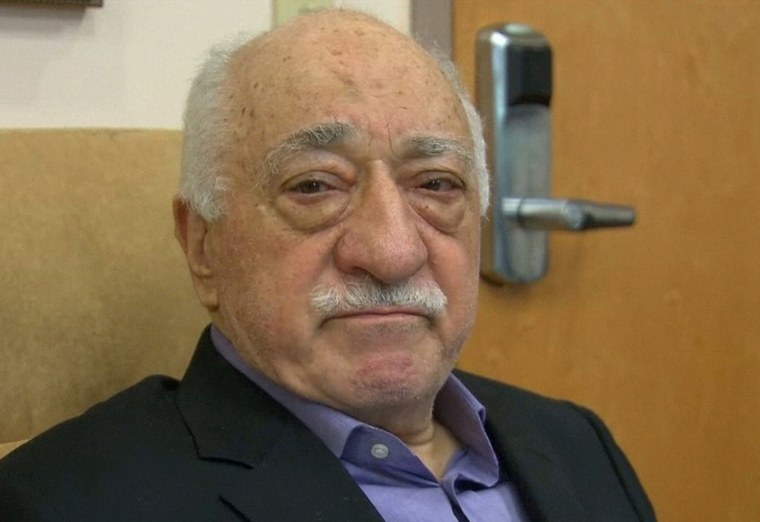American officials are pushing back against suggestions the U.S. is connected to a political movement the Turkish president blames for the assassination of Russia's ambassador to Turkey.
Turkish President Tayyip Erdogan on Wednesday claimed loyalists of Fethullah Gulen, a Turkish cleric who lives in Pennsylvania, are responsible for Monday's slaying of Ambassador Andrey Karlov at an Ankara art gallery, Reuters reported.

Secretary of State John Kerry has raised concerns about the overall "rhetoric coming out of Turkey" about U.S. involvement in the killing, State Department spokesman John Kirby later told reporters.
"It's a ludicrous claim, absolutely false, there's no basis of truth in it whatsoever," Kirby said of rhetoric suggesting the U.S. supported the assassination "because of the presence of Mr. Gulen here in the United States."
The gunman captured on video and in photos firing at Karlov was identified as 22-year-old Mevlut Mert Altintas, a member of Ankara's riot police.
Related: Photographer Who Captured Ambassador's Assassination Recounts Shooting
No motive has been released for why he opened fire on the envoy, but senior Turkish officials don't believe Altintas was a lone wolf. Witnesses said he shouted about jihad and Aleppo before police shot him dead at the scene. Karlov later died at the hospital.
Turkey considers supporters of Gulen, the self-imposed exiled cleric and opposition leader who has lived in the U.S. for more than a decade, as the leading force behind July’s failed military coup. Turkey wants him extradited from the U.S. to stand trial.

In a statement first released Monday, Gulen, 75, denied any involvement in the assassination and condemned it as a "heinous act of terror."
"This despicable act of shooting an ambassador, who represents an entire nation, only exacerbates the Syrian conflict that has already taken too many lives and driven too many from their homelands, like adding fuel to a fire," Gulen said.
Kirby asked for patience while investigators, which includes a team of Turkish and Russian authorities, finish their work in the case.
"Any notion that the United States was in any way supportive of this or behind this or even indirectly involved is absolutely ridiculous," he added.

